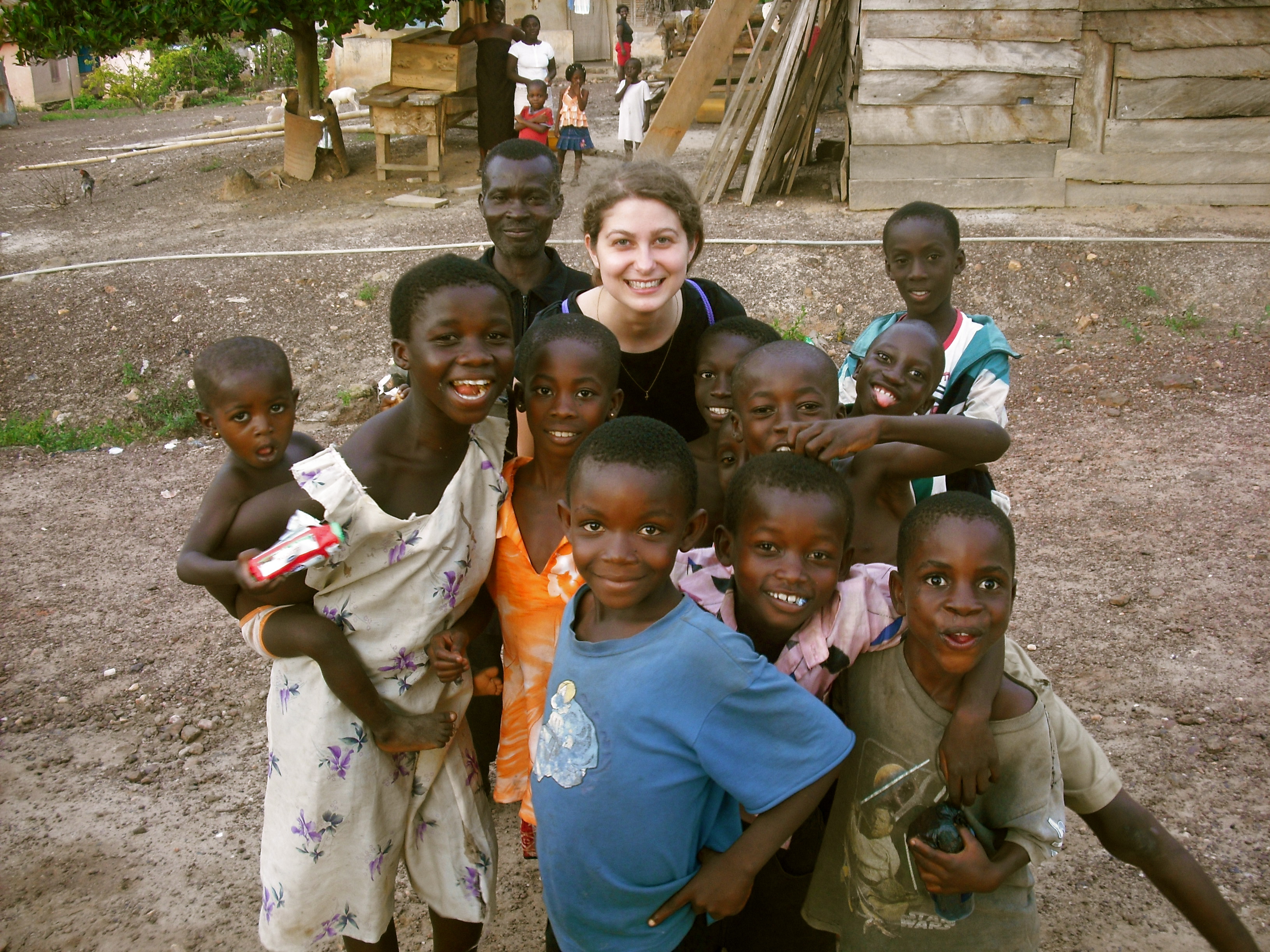Ashley Kilp
Friday night after getting back from dinner, a man was at the hotel to talk to Andrew, one of the other volunteers. This man turned out to be Dr. Osei K. Darkwa, for whom Andrew is doing some work. Sadly, Dr. Darkwa's mother had died a week prior, after they found out two weeks before that she had end stage lung cancer. Dr. Darkwa had asked Andrew if he would like to come to the One Week Celebration - the Ashanti version of a wake or viewing - and then extended the invitation to the rest of us. The rest either could not or did not want to go, but I jumped at the chance. Maybe it sounds a bit morbid that I actually wanted to go to a gathering concerning a recent death, but I was really interested in the customs and cultural practices surrounding it. While there are many things here that feel very foreign, it is something that I can directly compare to what I know. Death and grief are universal, and I wanted to see how a different culture dealt with them.
So we left the hotel at 3:30 AM to head to the outskirts of Kumasi, the second largest city in Ghana, and the home of the Ashanti people. I slept until the sun rose around 6, and at that point I couldn't keep my eyes closed because the scenery was so beautiful! Most of the area around Accra is flat, or at most just a little bit undulated, but this region is actually mountainous. And there were lots of forests and there was mist hanging around in the valleys because it was still early enough... it was just beautiful.
We made it to our first stop at around 9. Andrew and I ate breakfast with Dr. Darkwa and talked about Unite For Sight and healthcare and development things. Then Dr. Darkwa changed out of his khakis and button down shirt and replaced them with cargo shorts that were then covered by the traditional Ashanti cloth that he wrapped around his waist and over his shoulder. For funerals, Ashanti's wear specific colors. If the person was old, and had lived a long life, and their death was at least somewhat expected, then everyone wears patterned cloth of white and black. If the person was younger, and/or they died more unexpectedly, the colors were black and red or just black. Considering the rapidity of Mrs. Darkwa's decline, this was a black and red affair. Once Dr. Darkwa was ready, we set off for his hometown.
We got to the village, which seemed to be a fairly poor place. We walked into this walled area that surrounded the house where the celebration was being held. It was crazy. Every inner and outer wall was lined with plastic chairs, and more seating was placed wherever it could be. There were people sitting in almost all of the chairs, at least a hundred people in all, and Andrew and I were the only obroni's (an obroni being a foreigner, or more accurately, a white person. We get this yelled at us a lot). Following Dr. Darkwa, we snaked our way down the entire line, shaking hands with and greeting each and every person. My VERY VERY limited knowledge of Twi (the language of this area and the most common language besides English in Ghana, which has 45 languages) served me well. The people loved it when I was able to answer "Akwaaba" ("Welcome") with "Madasi" ("Thank you"), and "Wo ho te sein" ("How are you?") with "Me ho ye" ("I am fine") or "Eya" ("Fine"). I got a lot of laughs. And laughs weren't out of place here. It really was a celebration. The entire day, I saw only one person cry. The goal was to celebrate the life of the deceased, not to mourn it. Something that also really impressed me was that I never felt unwelcome. I was never made to feel that I didn't belong there or shouldn't be there. People were glad that we had come and did their best to make us feel at home!
